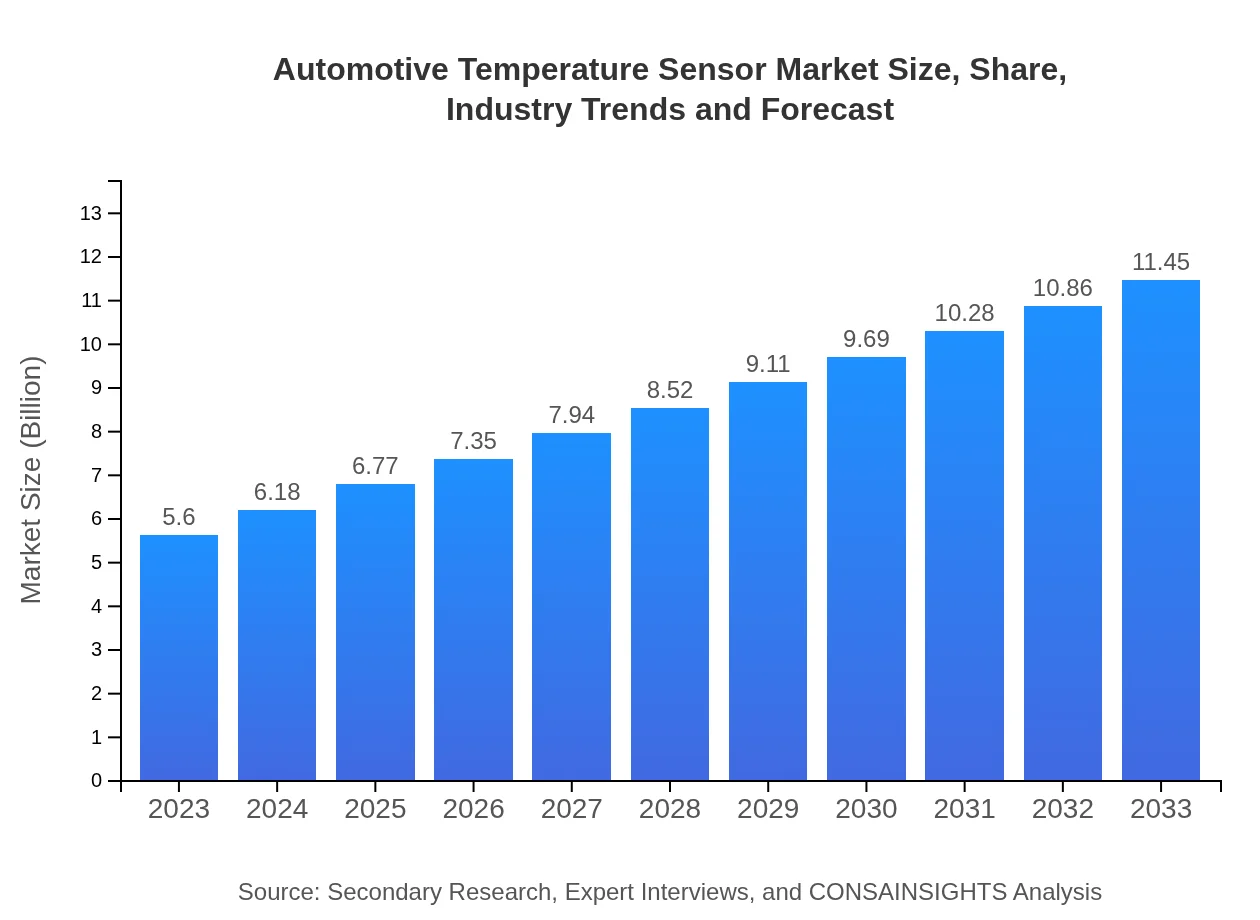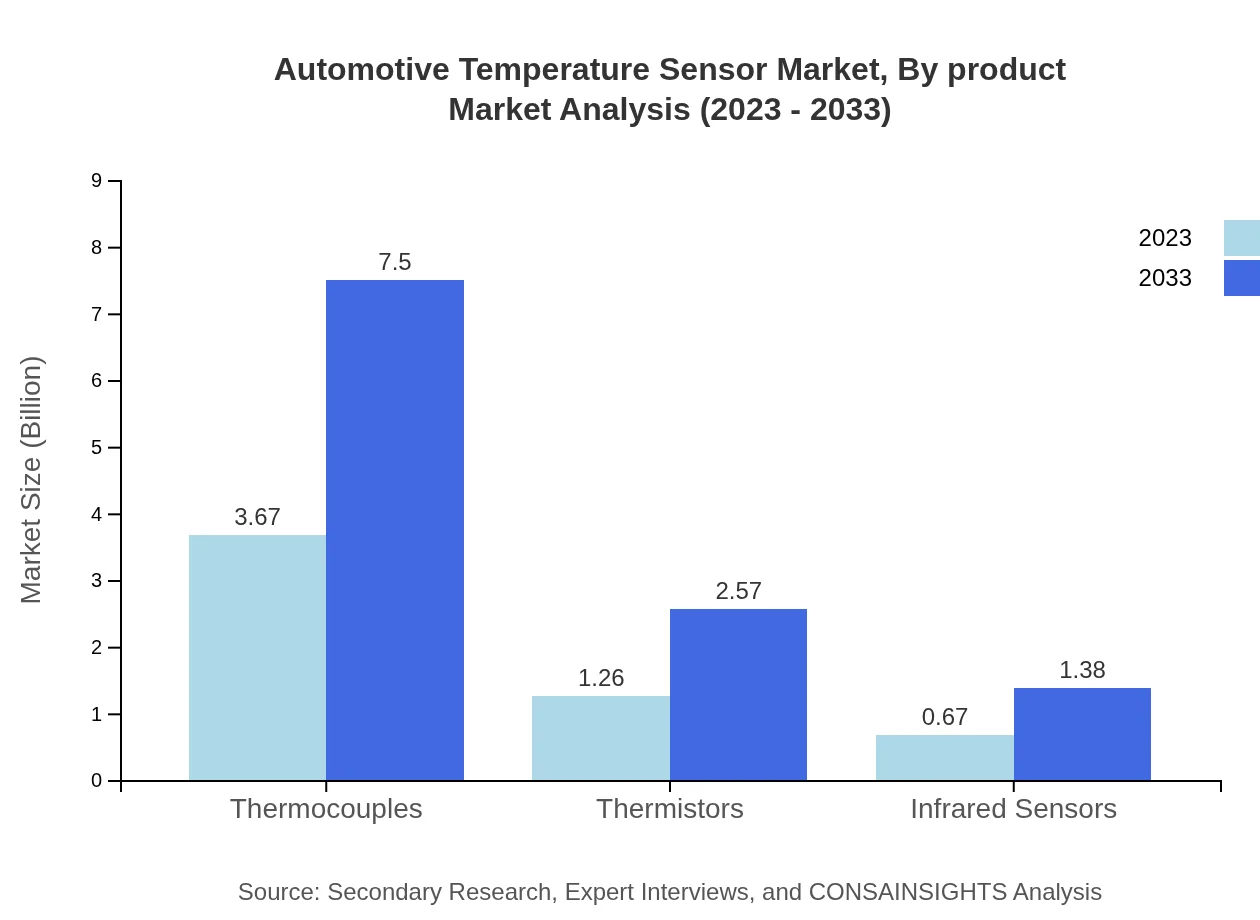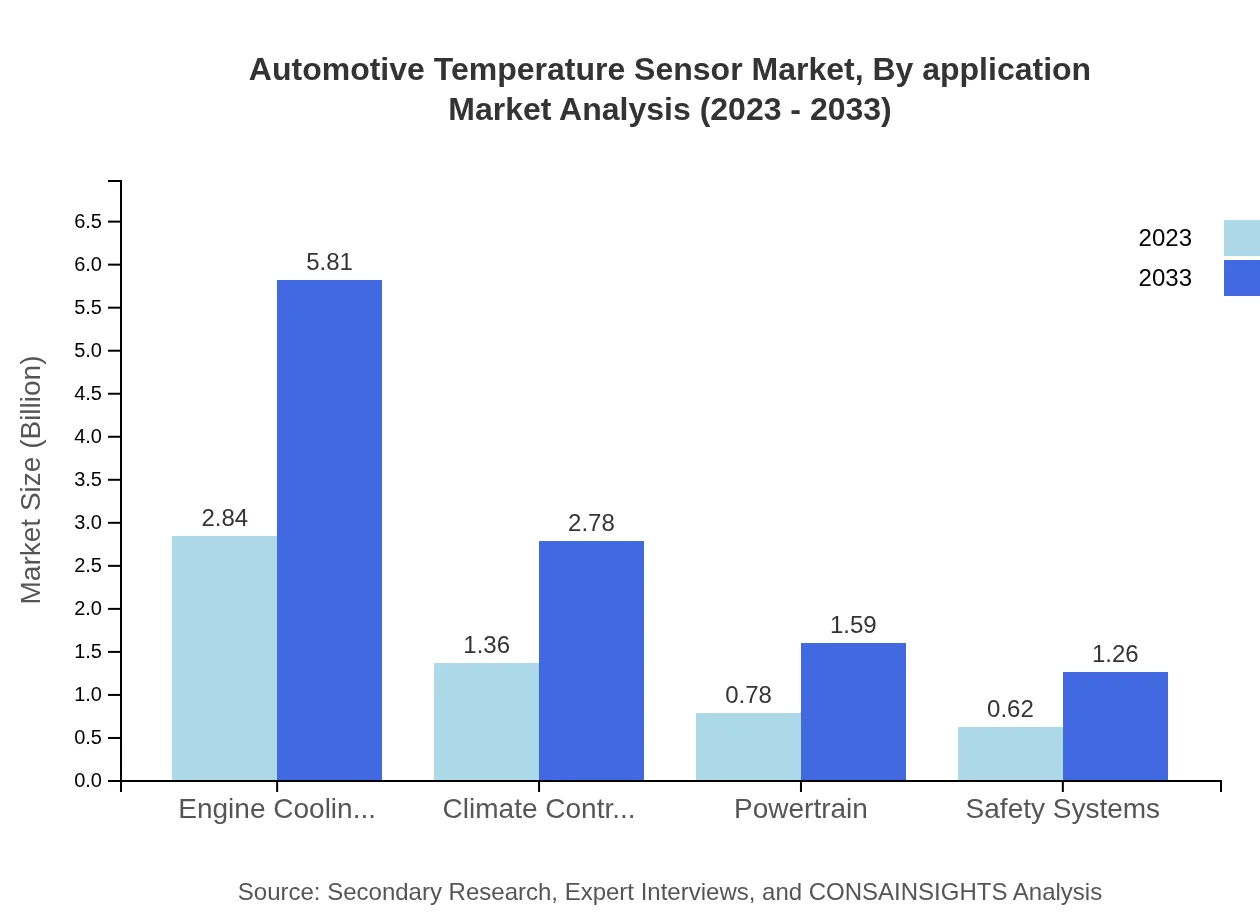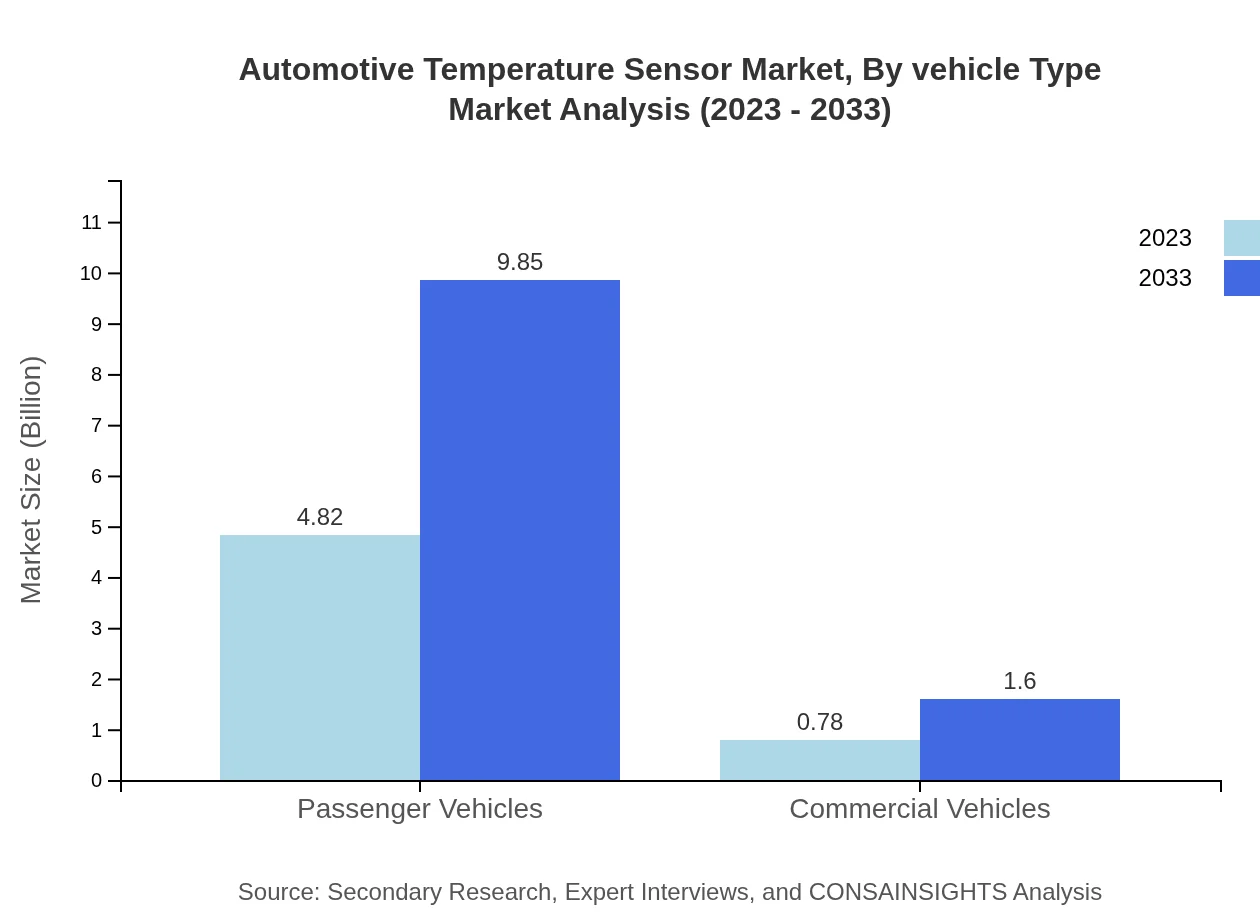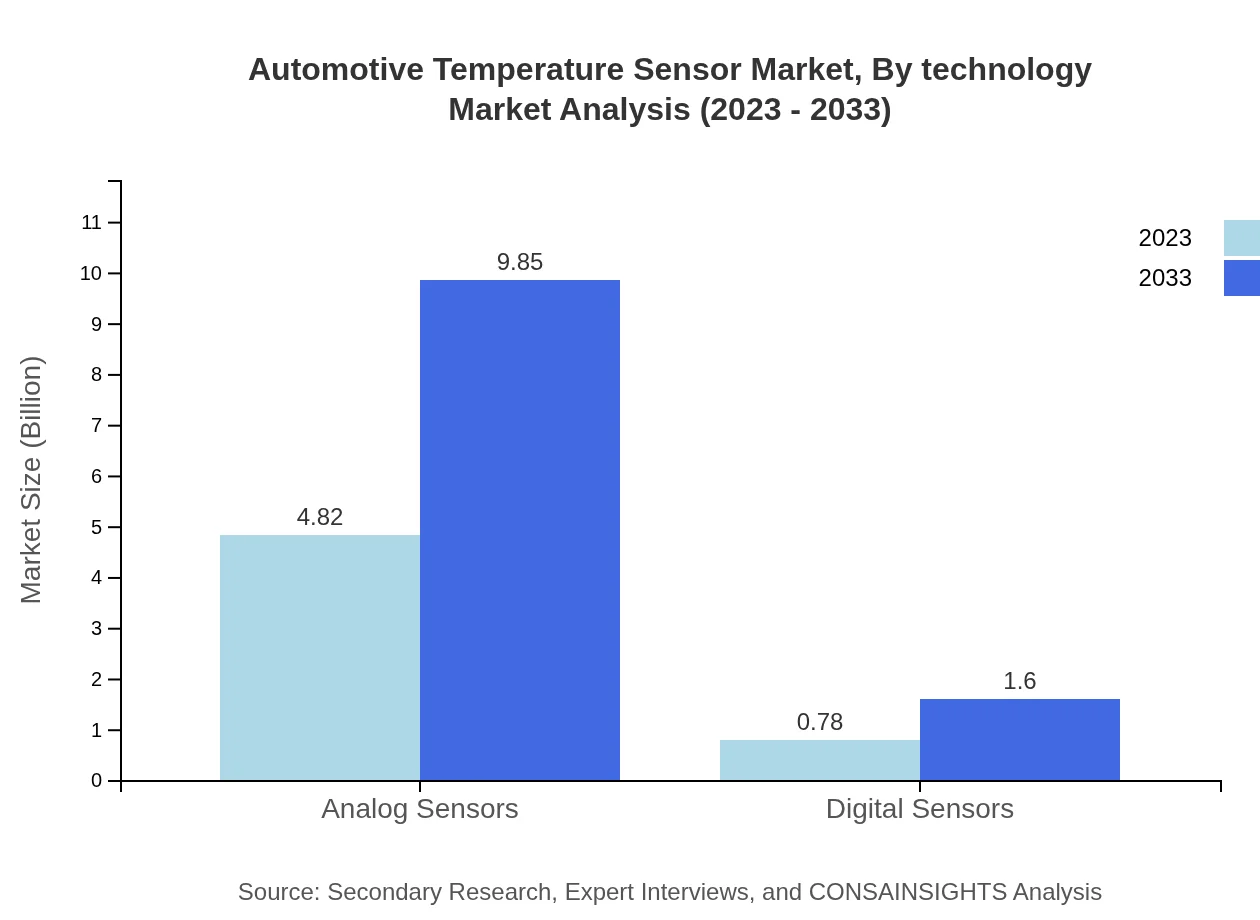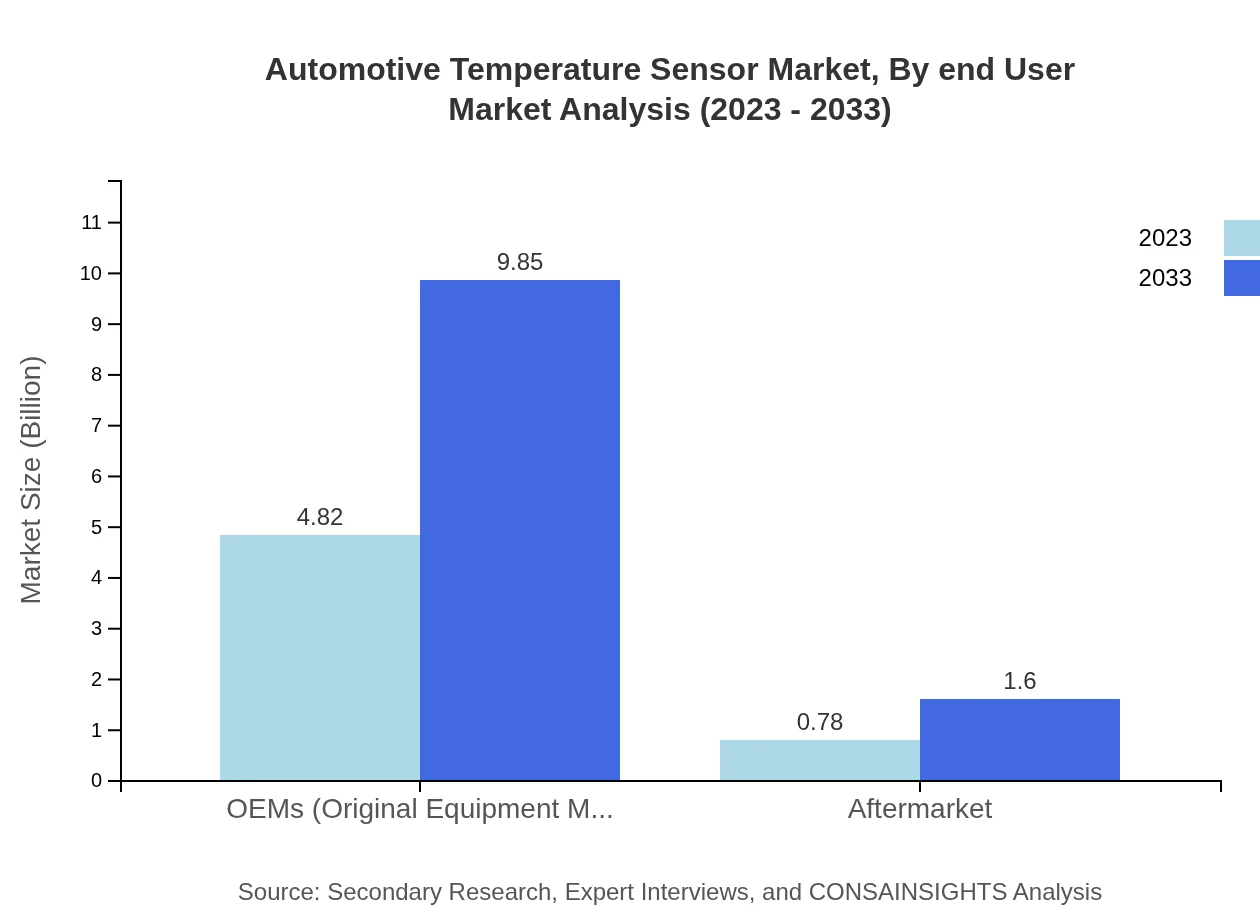Automotive Temperature Sensor Market Report
Published Date: 02 February 2026 | Report Code: automotive-temperature-sensor
Automotive Temperature Sensor Market Size, Share, Industry Trends and Forecast to 2033
This report provides a comprehensive analysis of the Automotive Temperature Sensor market, covering market dynamics, segmentation, regional analysis, and trends from 2023 to 2033, to assist stakeholders in making informed decisions.
| Metric | Value |
|---|---|
| Study Period | 2023 - 2033 |
| 2023 Market Size | $5.60 Billion |
| CAGR (2023-2033) | 7.2% |
| 2033 Market Size | $11.45 Billion |
| Top Companies | Honeywell International Inc., Texas Instruments, STMicroelectronics, Bosch, NTC Thermistors |
| Last Modified Date | 02 February 2026 |
Automotive Temperature Sensor Market Overview
Customize Automotive Temperature Sensor Market Report market research report
- ✔ Get in-depth analysis of Automotive Temperature Sensor market size, growth, and forecasts.
- ✔ Understand Automotive Temperature Sensor's regional dynamics and industry-specific trends.
- ✔ Identify potential applications, end-user demand, and growth segments in Automotive Temperature Sensor
What is the Market Size & CAGR of Automotive Temperature Sensor market in 2023?
Automotive Temperature Sensor Industry Analysis
Automotive Temperature Sensor Market Segmentation and Scope
Tell us your focus area and get a customized research report.
Automotive Temperature Sensor Market Analysis Report by Region
Europe Automotive Temperature Sensor Market Report:
In Europe, the market for Automotive Temperature Sensors will increase from $1.58 billion in 2023 to an estimated $3.22 billion by 2033. The need for compliance with stringent emission regulations, along with a growing trend towards electric vehicles, will be pivotal in shaping market dynamics in this region.Asia Pacific Automotive Temperature Sensor Market Report:
In the Asia Pacific region, the Automotive Temperature Sensor market size is projected to grow from $1.07 billion in 2023 to $2.19 billion by 2033. Factors contributing to this growth include the region's booming automotive industry, the increased production of electric vehicles, and rising consumer demand for advanced technology.North America Automotive Temperature Sensor Market Report:
North America will showcase significant growth, with market values moving from $2.08 billion in 2023 to approximately $4.25 billion in 2033. The region's adoption of advanced automotive technologies, including sophisticated temperature control systems and electric vehicles, drives this expansion.South America Automotive Temperature Sensor Market Report:
The South American automotive temperature sensor market is estimated to see growth from $0.50 billion in 2023 to $1.01 billion by 2033. This rise can be attributed to the expansion of the automotive sector, with manufacturers increasingly adopting modern sensor technologies to enhance vehicle performance and safety.Middle East & Africa Automotive Temperature Sensor Market Report:
The Middle East and Africa region is projected to grow modestly from $0.38 billion in 2023 to $0.77 billion by 2033. Economic diversification efforts and increasing investments in the automotive sector will foster growth, alongside rising consumer demand for efficient and safe vehicles.Tell us your focus area and get a customized research report.
Automotive Temperature Sensor Market Analysis By Product
The Automotive Temperature Sensor market by product type includes segments such as Thermocouples, Thermistors, and Infrared Sensors. Thermocouples dominate the market with sales projected to rise from $3.67 billion in 2023 to $7.50 billion by 2033, retaining a market share of approximately 65.51%. Thermistors, while smaller, will see growth from $1.26 billion to $2.57 billion, capturing 22.45% market share.
Automotive Temperature Sensor Market Analysis By Application
Applications of Automotive Temperature Sensors span Engine Cooling Systems, Climate Control Systems, Safety Systems, and Powertrain management. Engine Cooling Systems hold a leading market share of around 50.78%, with projected sales reaching $5.81 billion by 2033 from $2.84 billion in 2023. Climate Control Systems will also grow significantly, with revenues expected to rise from $1.36 billion to $2.78 billion.
Automotive Temperature Sensor Market Analysis By Vehicle Type
The market is segmented into Passenger Vehicles and Commercial Vehicles, with Passenger Vehicles representing the majority. From $4.82 billion in 2023, revenues for this segment are expected to reach approximately $9.85 billion by 2033, dominating the segment with an 86.06% market share.
Automotive Temperature Sensor Market Analysis By Technology
Technological advancements in Automotive Temperature Sensors include the transition from Analog to Digital Sensors. Analog Sensors will maintain their dominance with a market share of 86.06%, while Digital Sensors are expected to grow from $0.78 billion to $1.60 billion, claiming a 13.94% share by 2033.
Automotive Temperature Sensor Market Analysis By End User
The primary end-user of Automotive Temperature Sensors includes OEMs and Aftermarket purchasers. OEMs control a dominant share at 86.06% with a market increase from $4.82 billion to $9.85 billion, whereas the Aftermarket segment will grow from $0.78 billion to $1.60 billion, representing 13.94% market share through 2033.
Automotive Temperature Sensor Market Trends and Future Forecast
Tell us your focus area and get a customized research report.
Global Market Leaders and Top Companies in Automotive Temperature Sensor Industry
Honeywell International Inc.:
Honeywell is a leading technology and manufacturing company providing a wide range of temperature sensors and solutions for automotive applications, emphasizing reliability and precision.Texas Instruments:
Texas Instruments is a major player renowned for its innovative technology in sensor applications, including temperature sensing, supporting efficiency in automotive designs.STMicroelectronics:
STMicroelectronics focuses on advanced temperature sensors that integrate seamlessly into automotive platforms, providing critical data for vehicle performance.Bosch:
Robert Bosch GmbH, as a pioneer in automotive technology, develops high-quality temperature sensors that enhance vehicle safety and performance.NTC Thermistors:
NTC Thermistors specializes in manufacturing temperature sensors known for their accuracy in temperature measurement used in various automotive applications.We're grateful to work with incredible clients.









FAQs
What is the market size of automotive Temperature Sensor?
The global automotive temperature sensor market was valued at approximately $5.6 billion in 2023, with an expected CAGR of 7.2% over the next decade, indicating significant growth potential leading to an estimated market size of around $11.3 billion by 2033.
What are the key market players or companies in the automotive Temperature Sensor industry?
Key players in the automotive temperature sensor market include established firms such as Honeywell, Bosch, and STMicroelectronics, as well as newer entrants focusing on innovative technologies to enhance vehicle safety and efficiency.
What are the primary factors driving the growth in the automotive Temperature Sensor industry?
The growth of the automotive temperature sensor market is driven by increasing vehicle production, rising demand for electric vehicles, advancements in sensor technology, and heightened focus on safety and environmental regulations.
Which region is the fastest Growing in the automotive Temperature Sensor industry?
The Asia Pacific region is expected to be the fastest-growing market for automotive temperature sensors, with market size projected to rise from $1.07 billion in 2023 to $2.19 billion by 2033, indicating substantial growth opportunities.
Does ConsaInsights provide customized market report data for the automotive Temperature Sensor industry?
Yes, ConsaInsights offers customized market report data tailored to specific client needs in the automotive temperature sensor industry, providing insights and analysis on niche segments, leading competitors, and regional dynamics.
What deliverables can I expect from this automotive Temperature Sensor market research project?
Deliverables from the automotive temperature sensor market research project will typically include comprehensive market analysis reports, data on market size and forecast, key player profiles, and insights on industry trends and growth opportunities.
What are the market trends of automotive Temperature Sensor?
Current trends in the automotive temperature sensor market include increased integration of IoT technologies, enhancements in sensor accuracy, and growing demand for smart automotive applications, all contributing to better vehicle performance and user safety.

